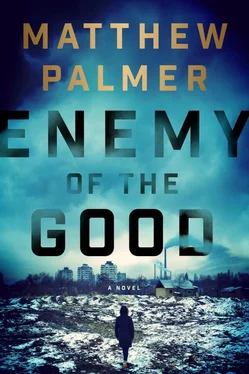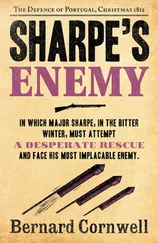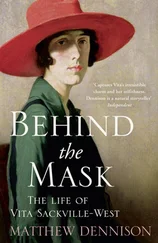“So you understand how flexible those charges are?” Crespo said. “That’s good. It’s always a pleasure working with professionals. I assure you that once your name is on the list, the burden of proof to get it removed will be on you. That can take time. A lot can happen in that time. You know how we treat people who make it onto that list? It’s so much more efficient than courts, don’t you think? You’d be safe enough in downtown Bishkek, I suppose. We’ve grown averse to collateral damage. But every time you take a trip outside the city limits, driving down some back road in an SUV, you’ll have to wonder, is today the day? We have a long reach, Mr. Chalibashvili, and a long, long memory.”
Chalibashvili was used to issuing these kinds of threats. Not receiving them. His equanimity was broken. His face was flushed and the edge of anger in his voice was unmistakable.
“How dare you come here and threaten me with your drones. I will bring this to the attention of the president and I guarantee that the base negotiations will be negatively affected by your behavior.”
“President Eraliev should be careful,” the ambassador observed, “not to alienate too many of the friends he has left, especially in light of the most recent developments. The United States has interests in this country. But those interests are many and varied and they must be balanced against one another. You should please tell him I said that. He’ll understand.”
Kate did. Values complexity. Her uncle was nothing if not consistent.
The rest was details. Forty-five minutes later, Kate was in the back of the ambassador’s armored Cadillac wearing her own clothes. She looked over her shoulder as the gates of the prison receded.
“Don’t worry,” her uncle said, misinterpreting the gesture. “You’ll never see the inside of that place again.”
One more time, maybe. I left something important behind. She kept this unspoken. Her uncle had likely saved her life, she knew, but she still did not know the full extent of the conflicting values he was balancing. How much was the life of his dead brother’s sister-in-law worth to him? But that did not mean that she was ready to let it rest.
“She was there, Ambassador. I saw her. It wasn’t a hallucination.”
“I don’t doubt you.”
Something in his tone triggered a connection for Kate, something that she had almost seen but overlooked.
“You knew, didn’t you? You knew she was there.”
“I suspected,” her uncle answered. “That’s not the same thing. There was some information. Fragmentary. Not reliable. But not easy to dismiss as noise.”
“And you did nothing?”
“No, Kate. I did my job.”
This was not a fight that she wanted to have in front of Crespo. It was a family matter.
“How did you find me?” she asked, changing the subject. “Chalibashvili made it sound like a state secret.”
“One of your friends in Boldu reached out to Larry through a cutout and let him know where you were.” Her uncle seemed relieved that the conversation had moved on from Zamira. “It was a risky thing for them to do. And it says something about your standing with them that they would take that risk.”
“Did you have the authority to do those things you threatened Chalibashvili with?”
“Of course not. We were freelancing. But it sounded good, didn’t it?”
“You had me fooled. More or less. I’m sorry about the base negotiations,” she added. “I know that they were important.”
“Not as important as you. There will be other negotiations. You are my only niece.”
“And what about you, Larry? You’re not family. And the tracking device you put in my purse is the reason I wound up in Prison Number One. I thought you’d be just as happy to leave me there.”
“You’re wrong, Kate,” Crespo said from the front seat. He did not turn around. “My tracker was the reason Usenov ended up in prison. You were there because you decided to violate every imaginable principle of diplomatic practice and join an armed assault on a foreign government facility. It frankly boggles the mind.”
Kate was duly chagrined. Crespo’s assessment of her actions was harsh but not unfair.
“So why did you come for me?”
“As I told you, I like to hedge my bets.”
“What do you mean?”
“You’ll see soon enough.”
“There’ve been some… changes… while you’ve been away,” the ambassador said.
“What kind of changes?”
“Your friends in Boldu have taken over Ala-Too Square. It looks like Maidan, with walls and a tent city, thousands of demonstrators, and a standoff with the Special Police. The situation is pretty fragile. It’s not clear how things are going to play out.”
Kate felt a surge of joy at the news. She did her best to keep the emotion from showing on her face, but she suspected that her uncle at least knew how to read Hollister family expressions too well to be fooled.
“Values complexity, Kate,” the ambassador said. “Never marry your position and never conflate your position and your ego. As circumstances change, we need to adapt. It’s what diplomats do.”
“I knew they were planning something like this. But I didn’t realize it would be quite so big.”
“It’s pretty big, all right,” Crespo said. “The stakes are high, and we don’t have a lot of visibility into what’s going on from the Boldu end of things.”
And suddenly it was clear what Crespo meant by hedging his bets.
“You think Boldu might succeed.” Kate said. “That the Eraliev government is in danger of collapse, and you want to make sure that you have your bases covered with the next government if that happens.”
“That would be my responsibility, yes.”
“And I’m a side bet. Is that right?”
“If you want to look at it that way, go ahead,” Crespo said. “But help us here, and the ambassador and I can make sure that nothing about your little misadventure in the Kyrgyz prison system gets back to Washington. And what they don’t know, they can’t punish.”
“So what do you want from me?”
“It’s simple, really,” her uncle said. “We want you to go inside the Boldu compound and tell us what’s going on. We want you to serve as a conduit between us and Usenov. And we want to make certain that if, in fact, Boldu’s Maidan-style revolution succeeds, the new powers that be look to the United States as a friend and partner and not as a stalking horse for the restoration of the ancien régime.”
“You want me to spy on Boldu?”
“No. You should be completely open about what you’re doing. We want you to do your job, Kate. To be a diplomat and represent the interests of your country to Usenov and his people. Do you think you can do that?”
“No secrets? No lies?”
“None.”
“I can do it. And I can do it damn well.”
“I know you can, Kate.”
“There’s one condition.”
The ambassador rolled his eyes in mock exasperation.
“Tell me.”
“We have to stop at my apartment first. I smell like a prison and I’m taking a shower before I see Ruslan.”
30

An hour later, the ambassador’s Cadillac pulled up right before a checkpoint about two blocks from Ala-Too Square.
“Here we are,” the ambassador said. “This is as close as we can get.”
Kate had showered and changed and she had an overnight bag resting on her lap. She had packed light. How do you dress for a revolution? The clothes she had chosen were more appropriate for a hike in the mountains than a diplomatic reception. She was wearing an old, comfortable pair of jeans, boots, and a black T-shirt under a light windbreaker. It had only been a few hours ago that she was a prisoner locked alone in her cell, but it already felt like that was weeks in the past.
Читать дальше













